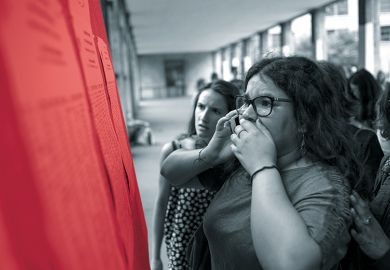That is the view of the Universities’ Council for the Education of Teachers (Ucet) in written evidence to the government-commissioned Carter Review of Initial Teacher Training.
In the evidence, written by James Noble-Rogers, executive director , and Jacquie Nunn, policy and liaison officer, Ucet recommends schools and prospective trainees should be able to make an “informed choice” about which programmes “best meet” their needs.
“Ucet believes that schools and prospective teachers should have the option of ITT programmes that are linked to academic awards such as the [Postgraduate Certificate in Education],” they write.
“The work associated with a PGCE is integral to [Qualified Teacher Status]. It does not constitute an additional burden on trainees but is instead a particular way of achieving QTS and assessing trainees against the QTS standards.”
They write that the “academic and research skills” embedded within PGCEs “help new teachers to adapt to different environments, circumstances and policies” and the courses give teachers “a capacity for systematic self-study and the ability to scrutinise their own teaching”.
“The benefits of such training include: a base, often at master’s degree level, for subsequent professional development; the embedding of research skills and literacy within programmes; the linking of theory and practice; and the rigour in terms of course content and assessment associated with national HE frameworks,” they add.
The evidence was submitted to the review last month ahead of the latest cuts to teacher training places at universities, which have raised more doubts about the continuing viability of PGCE programmes.
Ucet has been a staunch supporter of university teacher training routes since the introduction of the government’s School Direct policy, through which schools can recruit teacher trainees directly and decide what type of provider they would like to work with.
Following School Direct’s inception, universities have seen their core allocations for PGCEs and undergraduate courses decrease substantially.
Ucet points out that “universities also work with schools on the delivery of undergraduate programmes that lead to the award of a degree and QTS”.
“Undergraduate programmes are popular with headteachers because they ensure that the subject knowledge that is taught is relevant to the school curriculum.”
Evidence to the Carter Review has now closed and the panel are due to report their findings to Nicky Morgan, the education secretary, by the end of the year.
Register to continue
Why register?
- Registration is free and only takes a moment
- Once registered, you can read 3 articles a month
- Sign up for our newsletter
Subscribe
Or subscribe for unlimited access to:
- Unlimited access to news, views, insights & reviews
- Digital editions
- Digital access to THE’s university and college rankings analysis
Already registered or a current subscriber? Login




